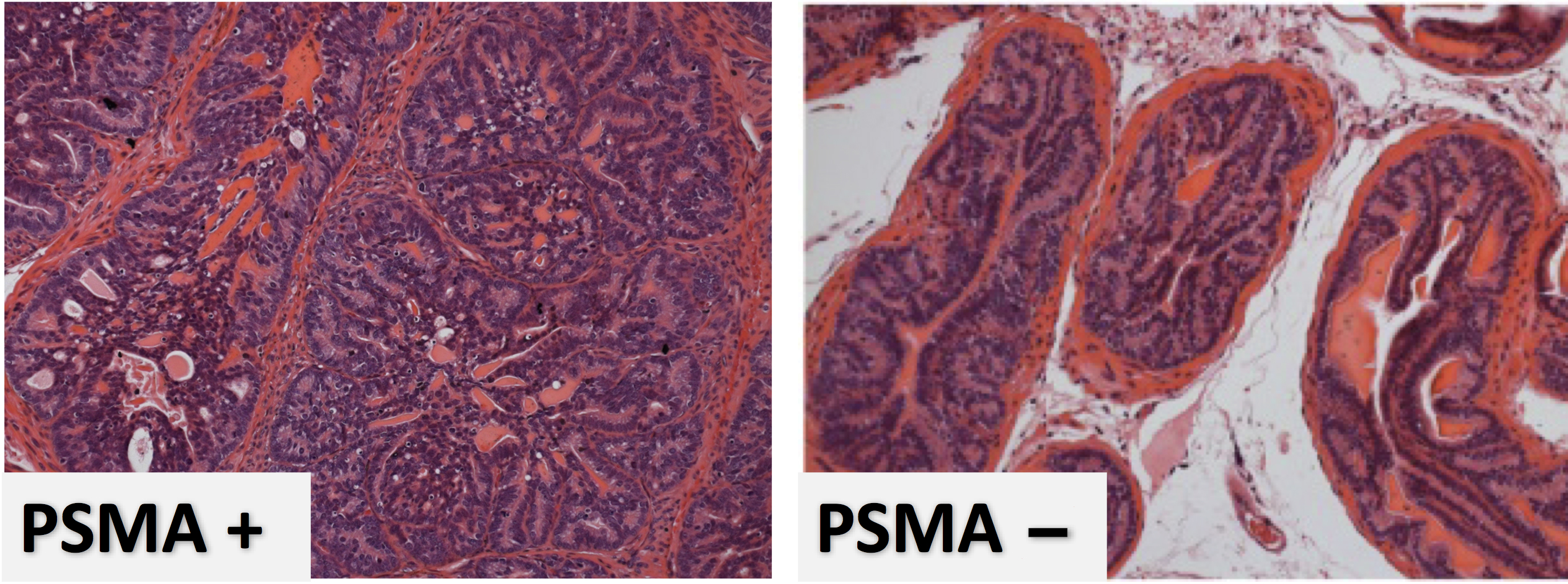Overview
My laboratory utilizes approaches from tumor biology, biochemistry, mathematical modeling and metabolomics to discover new and effective ways of detecting and treating prostate cancer. We are particularly interested in the transmembrane peptidase biomarker prostate specific membrane antigen (PSMA) and its role in detection and management of prostate cancer as well as its molecular role in disease progression. PSMA is a folate hydrolase encoded by the FOLH1 gene that is expressed at low levels on the cell surface of normal prostate epithelium and other organs, and is progressively and specifically upregulated in approximately 80% of primary PC tumors where it correlates negatively with prognosis. Current research projects involve: 1) defining PSMAs role in signal transduction pathway switching in prostate cancer; 2) exploring the functional contributions of prostate cancer-associated SNPs in the gene encoding PSMA, FOLH1, in African American men from NCI GMaP region 4; 3) mathematical modeling of PSMA and in glutamate addiction and prostate cancer progression. These studies may lead not only lead to the development of novel therapeutic strategies in the treatment of and detection of prostate cancer by preventing the progression, metastasis, and vascularization of tumors but since cancer is one of the most common diseases worldwide, this research is an important tool for researchers, clinicians, policy makers, and citizens in understanding this disease.
New Publication
PSMA redirects cell survival signaling from the MAPK to the PI3K-AKT pathways to promote the progression of prostate cancer. Caromile LA, Dortche K, Rahman MM, Grant CL, Stoddard C, Ferrer FA, Shapiro LH. Sci Signal. 2017 Mar 14;10(470). pii: eaag3326. doi: 10.1126/scisignal.aag3326.
Publications
In the News
Mark of Malignancy Identified in Prostate Cancer
The prostates that have PSMA (left) clearly have more tumor cells (purple) that have expanded the ducts to occlude the normally clear areas, perturbed the cellular organization within the ducts and disrupted the overall structure of the prostate; consistent with rapidly progressing tumors. Cells in the tumors without PSMA (right) appear to be growing more slowly since the ductal and interstitial space and structure is maintained somewhat, consistent with a less aggressive tumor.
The remarkable contributions of Native Americans in STEM.
At Keystone Symposia, the Diversity in Life Science Programs (DLSP) would like to share some of the thoughts of our Fellows who are of American Indian/Alaskan Native descent regarding how they perceive their role and responsibilities as scientists of color. In 1976, the United States' bicentennial year, Congress passed a resolution authorizing President Ford to proclaim a week in October as "Native American Awareness Week." On October 8, 1976, he issued his presidential proclamation doing so. Since then, Congress and the President have observed a day, a week or a month in honor of the American Indian and Alaska Native people.
Why Diversity Matters in Drug Trials
